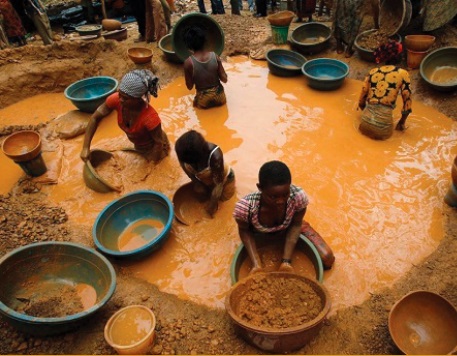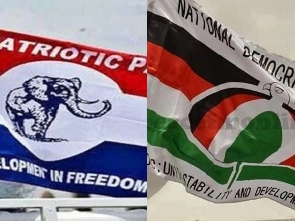In the quiet town of Akyem Nyamebekyere in Ghana's Eastern Region, silence has replaced the usual buzz of schoolchildren preparing for the Basic Education Certificate Examination (BECE). Desks remain empty, classrooms abandoned all because of galamsey, the illegal mining activity that continues to ravage not only Ghana's environment but also the futures of its youngest citizens.
This year, dozens of schoolchildren in communities affected by illegal mining were unable to sit for the 2025 BECE. Many had dropped out of school months earlier as mining activities encroached on their schools and homes, forcing families to flee or, in some cases, forcing children into the mines themselves to support household incomes.
Schools Swallowed by Galamsey
Local authorities report that in some districts, school compounds have literally been overrun by mining pits and contaminated water bodies. Teachers have been transferred or have refused postings to these high-risk areas. As a result, schooling has been halted entirely in several communities.
Children Traded for Gold
Beyond the destruction of school infrastructure, perhaps more devastating is the way children are being drawn into the illegal mining economy. Instead of learning algebra or reading comprehension, they are learning how to operate mercury-laced pans and handle tools in toxic conditions.
According to education officers in the affected districts, some BECE candidates who were registered earlier in the year were later found working at galamsey sites, having abandoned their books for quick money. Teachers lament the trend, saying years of effort are being undone by the lure and the coercion of illegal mining.
A Lost Generation?
The Ghana Education Service (GES) confirmed that a number of students in mining affected zones were unable to write this year’s BECE. While the exact figures are yet to be officially released, education activists fear this could become a recurring problem if decisive action is not taken.
“This is more than just an education issue, it’s a human rights crisis,” said Madam Akosua Owusu, a coordinator at the Child Education and Protection Alliance. “We are losing a generation to galamsey. The government must step in immediately to protect these children and ensure that education is restored in these communities.”
What Can Be Done?
As calls grow louder for a national emergency response, many are urging the government to:
- Reclaim lands and restore affected schools.
- Provide mobile or temporary classrooms for displaced students.
- Enforce stricter measures against illegal mining, especially near schools and residential areas.
- Launch community campaigns to raise awareness about the value of education.
- Offer scholarships or incentives to keep at-risk children in school.
For now, the situation remains dire. Until urgent steps are taken, the dreams of many young Ghanaians including those who hoped to become teachers, doctors, and engineers may remain buried beneath the dust and mud of illegal mining sites.













